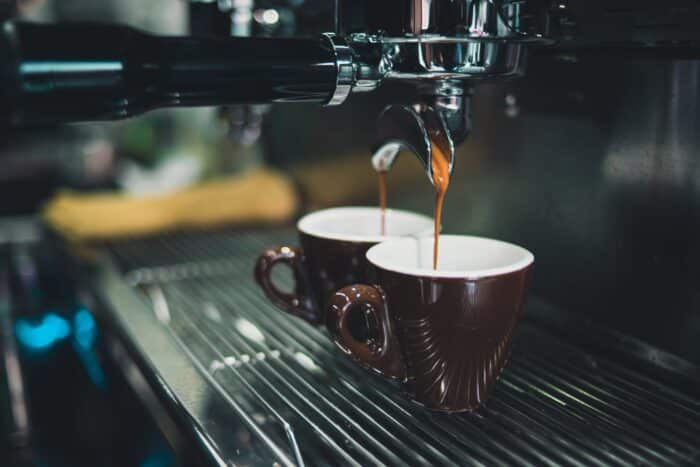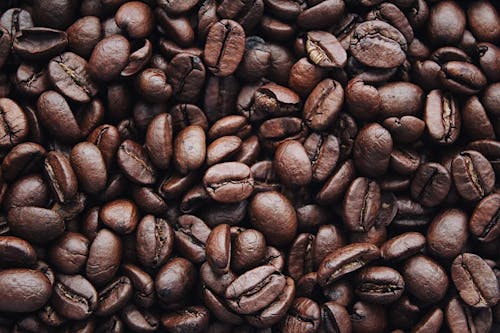Health
When is the Best Time to Drink Coffee?

When is the Best Time to Drink Coffee?
Be wary: Don’t have your cup of coffee immediately after you wake up.
This way, you’ll maximize its nutritional value.
Key Takeaways
To maximize the effects of caffeine, it should only be consumed sparingly. After just a few weeks of regular consumption, your body’s system becomes dependent on it and lessens its stimulant properties.
When drinking caffeine, the optimal times to consume it are immediately after waking, 30-60 minutes before exercise, or right before taking a nap.
One time to avoid caffeine is before bedtime. Caffeine can reduce sleep duration and quality even if taken up to six hours before trying to fall asleep.

Caffeine is widely consumed worldwide as a convenient and fast energy boost. Unfortunately, many individuals take this stimulant – commonly found in coffee, tea, dark chocolate, and soda – more like an oversized brush instead of an exact scalpel, often to their detriment.
Caffeine should only be consumed in moderation for maximum effects, as even one cup of coffee a day can lead to physiological dependence after only several weeks of regular consumption. Caffeine’s stimulant properties come from blocking specific receptors in the brain, which cause fatigue and exhaustion after being overstimulated with adenosine molecules produced during our working periods.
However, the more caffeine consumed, the more our brain produces receptors. These are linked to feelings of drowsiness due to adenosine content; thus, those who drink multiple cups of coffee a day become more fatigued; however, caffeine helps restore them to the level of alertness they had before becoming “coffee addicts.”
When is the Best Time to Consume Caffeine?
Research has suggested that it’s best to consume caffeine throughout the day. But it’s wise to be selective with how much one drinks; research has provided several helpful tips.
At first, it’s best to wait a couple of hours before having your morning cup of coffee. After waking, people usually experience an increase in energy levels of around 30-45 minutes; cortisol, a hormone that promotes focus and alertness, is at its highest during this period. This means you could substitute your morning latte with a light and sweet breakfast (such as cereal, yogurt, or fruit) and still experience an energizing effect. If your cortisol levels begin to decrease after 6 a.m. or just after, you could opt for a late-morning boost (between 9 a.m. and 11:30 a.m.).
Caffeine

Many of us would need a cup of coffee in hand to start our day, as it provides an energy boost as a mild stimulant for your central nervous system that quickly improves alertness and energy levels. But coffee isn’t the only beverage containing caffeine; learn more about its sources and studies conducted on caffeine’s health benefits.
Absorption and Metabolism of Caffeine
Caffeine, also known as trimethyl xanthine 1,3,7, is a bitter powder. It absorbs caffeine quickly after consumption – about 45 minutes – and can reach peak concentrations 15 to two hours after consumption. Beverages like tea, coffee, and soda quickly enter your digestive system, dissolving in body fluids and fat molecules before entering your cerebral circulation. Food ingredients like fibers within the gut may slow down how quickly caffeine levels rise, so sipping on an empty stomach could give you more energy boost faster than drinking it after breakfast does.
Caffeine is primarily broken down by the liver and can remain in the blood for anywhere from 1.5 to 9.5 hours, depending on various factors. Smoking can speed up the metabolism of caffeine, while oral contraceptives and pregnancy slow down its breakdown process. In the third trimester of pregnancy, caffeine may remain active within the body for up to 15 hours[3]
Many people experience “caffeine tolerance” when taking it frequently, which may reduce its stimulating effects unless you consume more. When coffee consumption abruptly ceases, symptoms like irritability, anxiety, headache or depressed mood, and fatigue usually set in within days but typically subside after one week. To minimize these adverse reactions, it’s wise to increase the dose gradually over time.
Sources of Caffeine
Caffeine naturally occurs in the leaves, fruits, and seeds of coffee cacao, coffee, and guarana plants; it’s also found in beverages and other supplements. Caffeinated drinks like carbonated drinks or energy drinks should be consumed sparingly because they’re chilled and easy to digest in large amounts due to their chilled nature.
Coffee contains around 95 mg of caffeine per cup or 8 ounces; instant coffees only have 60 mg of caffeine. Decaffeinated coffee, on the other hand, only provides four mg of caffeine. To better understand caffeine in coffee, here’s some basic info:
Espresso. A single shot or 1.5 ounces of coffee contains 65 mg of caffeine.
Tea. One cup of black tea has 47 mg, while green tea only has 28 milligrams. Decaffeinated tea contains 2 mg, and herbal tea does not have any caffeine at all – find out more about tea here.
Sodas. A 12-ounce can of diet or regular Coca-cola contains around 40 mg of caffeine, while Mountain Dew’s equivalent volume includes 55 mg of caffeine.
Chocolate (cacao). One ounce of dark chocolate has 24 mg, while milk chocolate contains just one-quarter of that amount.
Guarana. This South American plant’s seeds have been extracted into an extract for use in energy drinks, foods, and supplements. Guarana seeds contain four times more caffeine than coffee beans, so some drinks containing excerpts from these seeds could have up to 125 mg of caffeine per serving.
Energy drinks contain caffeine in large doses; 1 cup or 8 ounces of the beverage typically contains 85 mg, while 16 ounces double that to 170 mg, with two-ounce servings containing 200 mg of caffeine. Learn more about energy drinks by exploring their ingredients list below.
Supplements. Caffeine supplements contain 200 mg in each tablet, the same amount as two cups of brewed coffee.
Recommended Amounts
On average, in the U.S., adults consume an average of 135 mg of caffeine daily – equivalent to 1.5 cups of coffee (1 cup equals 8 ounces). 5 The Food and Drug Administration believes 400 milligrams (about 4 cups brewed coffee) is an acceptable amount for healthy adults to consume daily; however pregnant women must limit their caffeine consumption to 200 mg per day (equivalent to two cups brewed coffee), according to American College of Obstetricians and Gynecologists.
According to the American Academy of Pediatrics, children younger than 12 should not consume any beverage or food that contains caffeine. Teenagers aged 12 and up are advised not to exceed 100 mg of caffeine daily – roughly equivalent to two or three 12-ounce bottles of soda cola.
Caffeine and Health
Caffeine has been linked to various diseases due to genetic differences. While some individuals may have tolerances or reactions to caffeine due to regular consumption, such as drinking multiple cups of coffee throughout the day, studies have also been done on caffeine on its own; research into its effects has focused on discovering whether there are any potential health benefits from drinking caffeine on its own.
Signs of Toxicity
Caffeine-related toxicity has been reported when consuming 1.2 milligrams or greater in one dosage. Consuming 10-14 grams at once could be fatal; up to 10 grams caused vomiting and convulsions, but recovery was achieved within 6 hours. Lower doses of less than 1 gram may cause nervousness, restlessness, irritability, vomiting, and rapid heart rate tremors.
Toxicity is usually not a concern when drinking beverages that contain caffeine since an immense amount must be consumed within a short time to reach toxic levels (10 grams of caffeine is equivalent to approximately 100 cups of coffee). High blood levels of caffeine usually only arise from excessive use of caffeine tablets or pills [3]
Did You Know?
Caffeine is present in beverages and food and in many medications. It often works with analgesics (pain relief drugs) to provide faster relief from headaches and pain. Migraines or headaches often stem from swelling of inflamed blood vessels; caffeine has the opposite effect by shrinking these blood vessels to ease discomfort caused by migraine or headaches.
Caffeine has the potential to interact with many medications. Taken together, these can cause the body to break down the drug too rapidly, rendering it no longer effective. In extreme cases, this could result in an irregular heartbeat and elevated blood pressure. Some medicines can reduce caffeine levels in your system, which could increase feelings of irritability and jitteriness if you consume large amounts of caffeinated beverages throughout the day. Therefore, if you consume caffeine frequently, consult your physician about potential interactions before beginning a new medication regimen.
Coffee
Millions of people worldwide who are tempted to grab their morning cup of joy may continue to consider its health benefits or potential hazards. Yet coffee has been the subject of much debate throughout history.
Energy Drinks
Many energy drinks contain around 200 mg of caffeine, the same amount in two cups of freshly brewed coffee. Due to the number of stimulants and sugar found in these drinks, there has been concern that they may not be beneficial or even hazardous for those under 18 or suffering from certain health issues.




















































